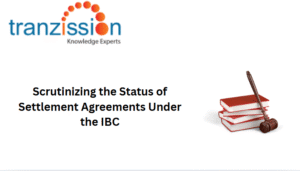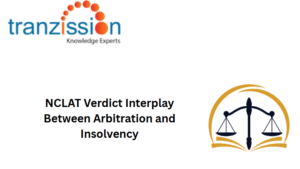
Interim Measures Ordered by Arbitral Tribunal

Table of Contents
What Are Interim Measures in Arbitration?
Interim measures are temporary reliefs granted by an arbitral tribunal or a court to protect the rights of parties before the final award is delivered. These measures can include orders to maintain the status quo, preserve assets, protect evidence, or require a party to post security for costs. The enforceability of interim measures depends on national laws and local courts, as some jurisdictions may not recognise or enforce them. Such measures are temporary and are usually passed based on prima facie measures.
Legal Framework for Interim Measures:
In India, interim measures in arbitration are primarily governed by the Arbitration and Conciliation Act, 1996 (hereon forward known as “the Act”), specifically sections 9 and 17, which allow courts and arbitral tribunals to grant such measures, respectively.
Check this out : Limited Insolvency Practice Exam
Judicial Trends in Interim Reliefs in Arbitration
Indian courts can grant interim measures in arbitration proceedings, even before or during the arbitration. Through section 9 of the Act, courts protect the subject matter of the dispute and ensure a fair process. Courts have increasingly supported arbitral tribunals by enforcing interim orders under Section 17 of the Arbitration Act, and recent judgments emphasize minimal court interference in arbitration proceedings. For instance, the decisions in Sundaram Finance Ltd. v. NEPC India Ltd and Essar House Limited v. Arcelor Mittal Nippon Steel clarified the scope and requirements for interim reliefs. These courts in these cases emphasised that a strong possibility of asset diminution suffices, rather than actual attempts to tamper with property.
Relevance of Interim Measures in Insolvency & Commercial Arbitration
Why Are Interim Measures Crucial in Insolvency-Related Arbitration?
Interim measures in insolvency-related arbitration, such as asset preservation orders, are important to protect parties’ rights and ensure a fair outcome by preserving assets, preventing dissipation, and maintaining the status quo before a final award. Without interim measures, a party might act in a way that makes any eventual award invalid or difficult to enforce, rendering the arbitration process ineffective. Further, it prevents asset diversion by distressed debtors and ensures the continuity of business operations during dispute resolution.
Role of Interim Reliefs in Cross-Border Insolvency & Arbitration:
In cross-border insolvency, interim relief aims to facilitate the orderly and fair conduct of insolvency proceedings, particularly when dealing with assets and parties located in different countries. This can include measures like preservation of assets, suspending ongoing litigation or arbitration proceedings related to the insolvent company’s assets, and recognition of foreign proceedings. Therefore, interim measures ensure compliance with international arbitration awards, and interim orders can be used to secure assets in multiple jurisdictions.
Challenges in Enforcing Tribunal-Ordered Interim Measures
Issues in Enforcement of Tribunal-Granted Interim Measures:
Enforcing tribunal-granted interim measures can be challenging, especially in international arbitration, due to varying legal frameworks and potential for non-compliance. However, the 2015 amendment to the Act aims to strengthen enforcement by recognising interim awards as legally binding, similar to court orders. As tribunal-ordered interim measures lack direct enforceability, parties often approach courts for enforcement, which leads to delays.
Resistance from Parties to Comply With Tribunal’s Interim Orders:
Non-compliance undermines the arbitration process and forces parties into litigation, diminishing the reason for opting for alternative dispute resolution. In insolvency cases, some companies use delay tactics to weaken the effect of interim reliefs, leading to further disputes, delaying the resolution process, and affecting the rights of the parties involved.
Potential Legislative Amendments to Strengthen Interim Reliefs:
To address the issues of enforcement, delaying tactics, and non-compliance, while strengthening interim reliefs, there is a need for uniform global recognition of tribunal-ordered interim measures and clarification on the role of courts in enforcing such measures.
Best Practices for Seeking Interim Relief in Arbitration
To improve legal frameworks for seeking interim relief in arbitration, India should consider streamlining processes, clarifying the scope of interim measures, and enhancing enforcement mechanisms, while ensuring judicial efficiency. To strengthen an application for interim measures, parties and arbitrators can demonstrate urgency and potential irreparable harm, and showcase the prima facie case. Parties should use well-drafted arbitration clauses to define interim relief powers to plan for potential disputes. They should explicitly mention the tribunal’s power to grant interim reliefs and specify enforceability mechanisms to ensure compliance.
The Future of Interim Measures in Arbitration – Strengthening Legal Frameworks
The future of interim measures lies in balancing the needs for swift, effective relief with the principle of minimising judicial intervention, with a focus on strengthening the role of arbitral tribunals in granting and enforcing such measures. Courts worldwide, including India, are recognizing emergency arbitration awards and ensuring quicker relief without waiting for tribunal constitution. The use of artificial intelligence in case management tools to expedite interim relief applications and blockchain-based arbitration for securing assets during dispute resolution.
Conclusion
Interim measures can order parties to maintain or restore the situation as it was before the dispute arose, preventing further harm. They are crucial in arbitration and insolvency cases as they protect parties’ rights by safeguarding assets, maintaining the status quo, and preventing irreparable harm, until a final award is issued, thereby ensuring the effectiveness of the arbitration process. Insolvency professionals need a strong understanding of arbitration laws because arbitration clauses in contracts or agreements can significantly impact the resolution proceedings, particularly regarding the resolution of disputes and the enforcement of claims against an insolvency entity. It is imperative for companies because they often include arbitration clauses in contracts, and understanding these laws helps them navigate resolution processes effectively and efficiently.





